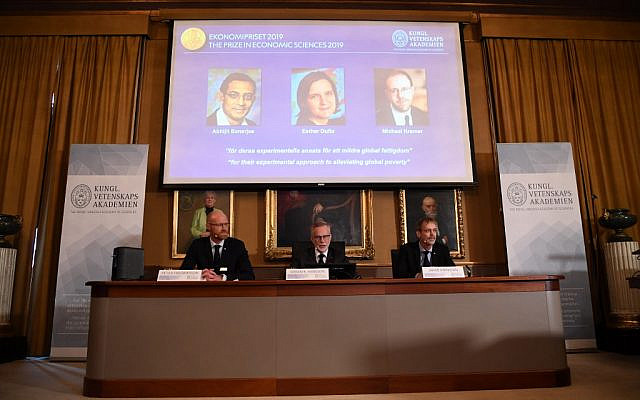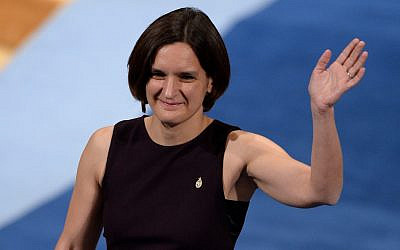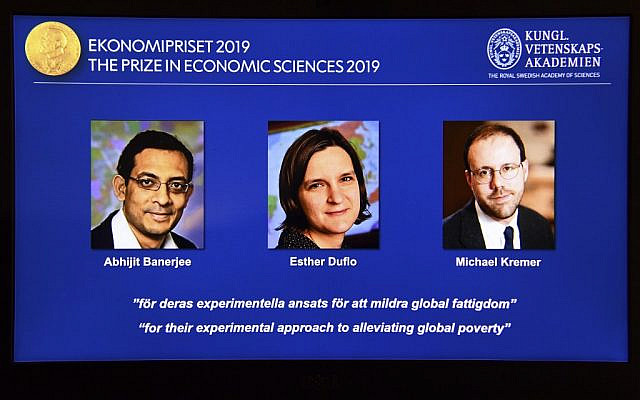Michael Kremer, Abhijit Banerjee and Esther Duflo receive award ‘for their experimental approach to alleviating global poverty’; Duflo becomes second ever female winner

STOCKHOLM — The 2019 Nobel Prize in Economic Sciences has been awarded Monday to Abhijit Banerjee, Esther Duflo and Michael Kremer “for their experimental approach to alleviating global poverty.”
Banerjee and Duflo are both at the Massachusetts Institute of Technology and have authored several books together, while Kremer is at Harvard University.

Duflo, who was woken up by Goran Hansson, secretary general of the Royal Swedish Academy of Sciences, said that getting the prize was “incredibly humbling.”
Duflo, who was born in 1972 in Paris, is the youngest ever to receive the economics prize. She is also only the second woman to win the economics prize, after Elinor Ostrom in 2009.
Duflo noted that the profession was not always welcoming to women.
“Showing that it is possible for a woman to succeed and be recognized for success I hope is going to inspire many, many other women to continue working and many other men to give them the respect that they deserve like every single human being,” she said.
In 2013, Duflo received the Dan David Prize, which is awarded by the Dan David Foundation at Tel Aviv University.
Kremer last year received an award from the Boris Mints Institute, which is also at Tel Aviv University.
The three found efficient ways of combating poverty by breaking down difficult issues into smaller, more manageable questions, which can then be answered through field experiments, the jury said.
“They have shown that these smaller, more precise, questions are often best answered via carefully designed experiments among the people who are most affected,” it said.
“As a direct result of one of their studies, more than five million Indian children have benefited from effective programs of remedial tutoring in schools. Another example is the heavy subsidies for preventive healthcare that have been introduced in many countries,” the jury said.

Officially known as the Bank of Sweden Prize in Economic Sciences in Memory of Alfred Nobel, the award wasn’t created by the prize founder, but is considered to be part of the Nobel stable of awards.
It was created by Riksbanken, the Swedish central bank, in 1968, and the first winner was selected a year later.
With the glory comes a 9 million-kronor ($918,000) cash award, a gold medal and a diploma.
Last week, six Nobel prizes were given — medicine, physics and chemistry plus two literature awards, and the coveted Peace Prize.
All but the winner of the Peace Prize receive their awards on Dec. 10 — the anniversary of Nobel’s death in 1896 — in Stockholm. The winner of the Peace Prize receives the award in Oslo, Norway.
As reported by The Times of Israel
